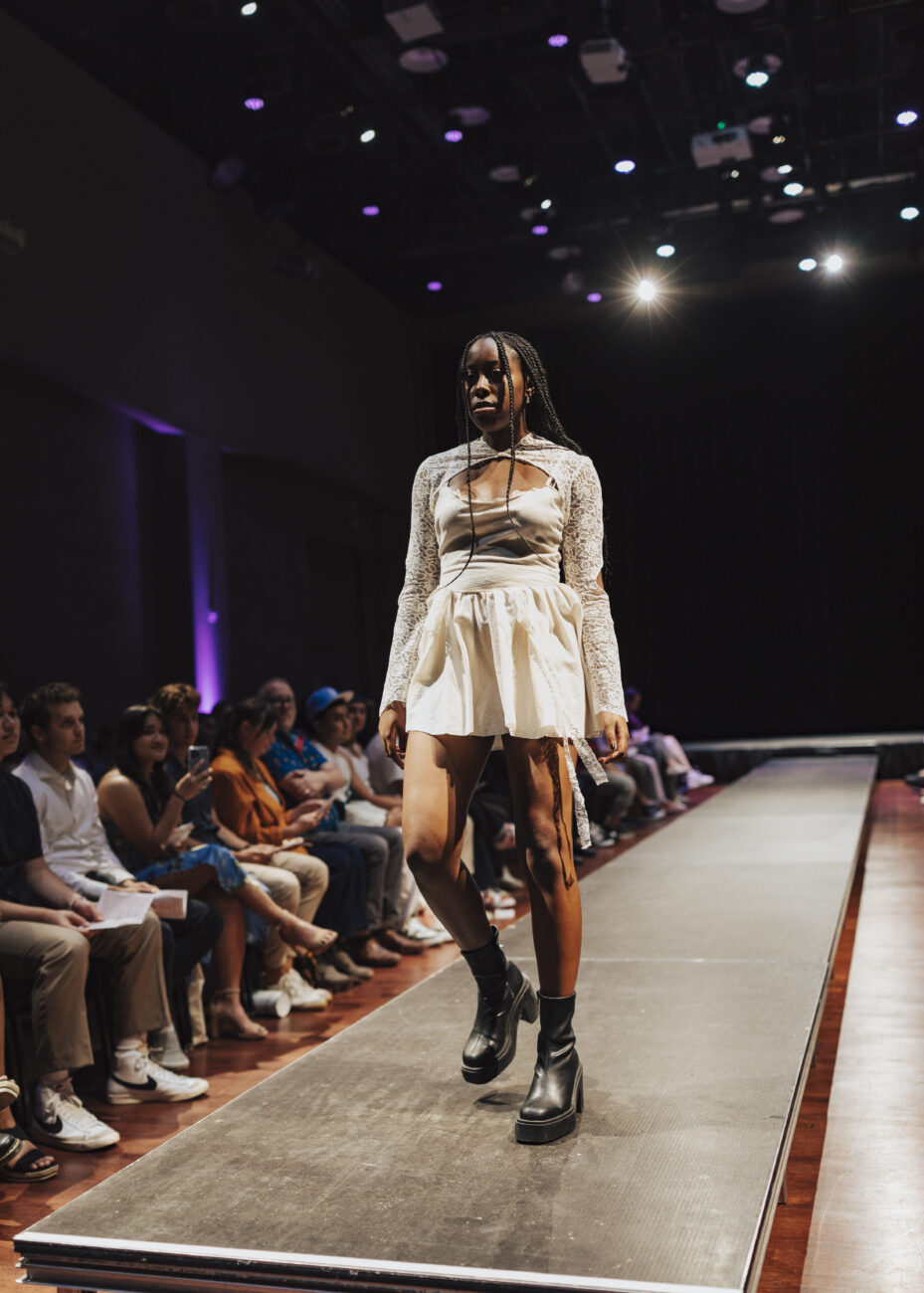Sustainable Fashion Club is a Cal Poly student-run organization focused on informing, promoting and cultivating spaces and knowledge about the fast fashion industry and sustainability. This year, armed with the largest executive board in club history with 17 members, Sustainable Fashion Club is hoping to not only inspire people to participate in more sustainable practices like thrifting and reducing consumption but also to learn about how the concept of sustainability is inextricably linked to environmental racism.
Environmental management and protection senior Lenaya Aiden-Gonzales serves as the president of the Sustainable Fashion Club.
“Sustainable fashion is basically practicing fashion choices. So consumer choices relating to fashion, clothing, jewelry, things like that, in a way that doesn’t deplete the resource for the future,” Gonzales said.




Sustainable fashion is a term many people, especially students, have become more familiar with, but Gonzales said she wants to emphasize how one cannot understand how to act in a truly sustainable way without first understanding environmental racism.
“Environmental racism is a phenomenon that happens when there’s a disproportionate effect on communities, especially lower-income communities of color. And it has to do with where they’re placed and how policy is shaped in a way that puts them at the downstream end of that supply chain,” Gonzales said.
For example, the practice of redlining and segregation of neighborhoods forced many communities of color into less desirable neighborhoods such as those close to freeways and waste facilities. This segregation contributed to a feedback loop in which minority and POC communities not only faced the effects of these environmental hazards, but also had no position to fight against them due to institutionalized racism’s prevention of their upward mobility.
Environmental management and protection senior Sarah Lafazia, this year’s social media manager for the club, said that in order to prepare for the shift of the club back to a mission rooted in promoting environmental justice, she has to refresh herself on social media’s role in advocacy.
“Moving forward, since we are kind of shifting our mission, we have to make sure we promote information in a way that’s respectful of people and getting information,” Lafazia said.
Gonzales has encouraged the club to meet with her mentor Ernesto Reyes, the equity and inclusion senior coordinator for Cal Poly clubs and organizations, in order to get more information on what exactly environmental racism is and how it relates to sustainability to ensure that the members of the club provide relevant and engaging information.

The increased size of the club has also allowed for the creation of a researcher position on the board, highlighting the importance of educating people with peer-reviewed facts and scientifically backed information.
“We created that position so we can get actual factual information on those important topics and be a resource for students on campus,” Lafazia said. “We’re going to use them to do research on specific topics related to environmental rights and environmental justice and how that relates to fast fashion and ethics and all those like intertwined topics.”
Gonzales emphasized a piece of advice given to her by Reyes.
“Passion is not expertise,” Gonzales said. “At the end of the day, expertise comes with lived and learned knowledge and you only get that through experience and time. So forgive yourself to be on that learning journey and be present in it.”
As the expansion of Sustainable Fashion Club continues, they will continue to host bi-monthly meetings and their swap and shop at Dexter Lawn. More information is available on their instagram, @cpsustainablefashion.
Resources for future events and BIPOC and LGBTQ+ sustainable brands are available at: https://tr.ee/ZHXBDtd_Y3


